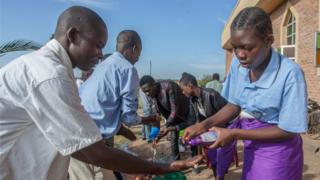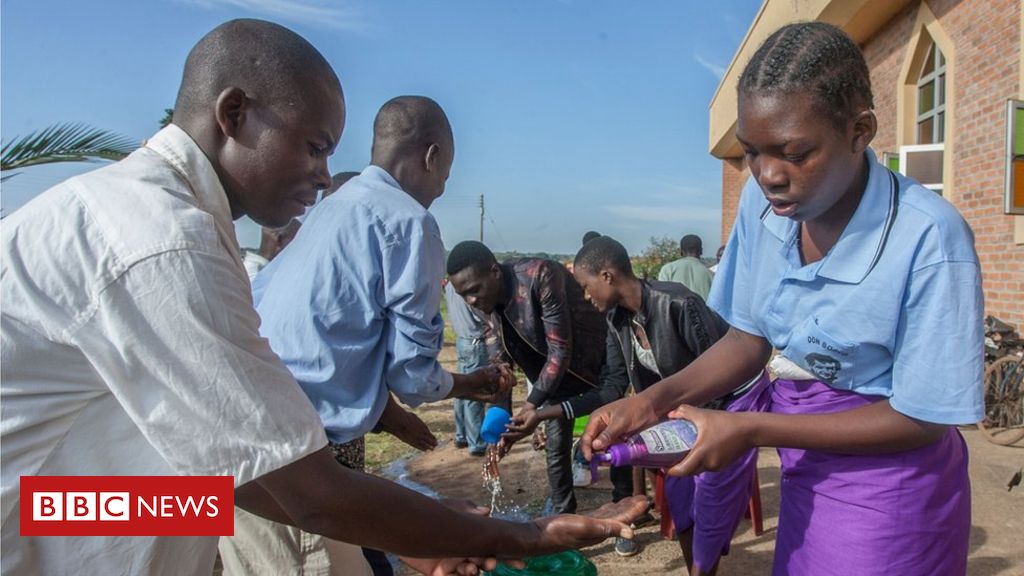 Image copyright
Image copyright
AFP
Parishioners washing their hands as a preventative measure in Malawi’s capital, Lilongwe
On 12 January – less than three months ago – the coronavirus was confined to China. Not a single case had been found outside the country where it emerged.
And then, on 13 January, the virus became a global problem. A case was recorded in Thailand before Japan, South Korea and the United States soon followed.
Across the world, a trickle of cases became a flood.
There have now been more than a million Covid-19 cases worldwide, in countries from Nepal to Nicaragua. But as the death tolls rise, and the hospitals overflow, is anywhere still coronavirus-free?
The answer, perhaps surprisingly, is yes.
Image copyright
EPA
In North Korea, no reported cases and more missile tests
There are 193 countries which are members of the United Nations.
As of 2 April, 18 countries had not reported a Covid-19 case, according to a BBC tally using data from Johns Hopkins University.
The 18 countries without Covid-19
Comoros; Kiribati; Lesotho; Marshall Islands; Micronesia; Nauru; North Korea; Palau; Samoa; Sao Tome and Principe; Solomon Islands; South Sudan; Tajikistan; Tonga; Turkmenistan; Tuvalu; Vanuatu, Yemen
Some, experts agree, are likely to have unreported cases. North Korea, for example, is officially on zero, as is war-torn Yemen.
But there are countries where the virus has not landed. Most are small islands with few visitors – in fact, seven of the world’s 10 least-visited places, as per UN data, are free of Covid-19.
That remoteness means one thing: in this age of social-distancing rules, island nations are the original self-isolators.
But the president of one such place is not complacent. In fact, he tells the BBC, Covid-19 is already a national emergency.
Nauru, in the Pacific Ocean, is almost 200 miles (320km) from anywhere – Banaba Island, part of Kiribati, is the nearest land. The nearest “major” city with direct flights is Brisbane, 2,500 miles south-west.
It is the second-smallest UN state in terms of land (after Monaco) and, with just over 10,000 people, the second-smallest in terms of population (after Tuvalu).
It is also one of the least-visited places on Earth. Although it does not appear in the most recent UN data, one tour operator says the country has just 160 tourists a year.
You may think such a distant place would not need to distance itself further. But a country with one hospital, no ventilators, and a

